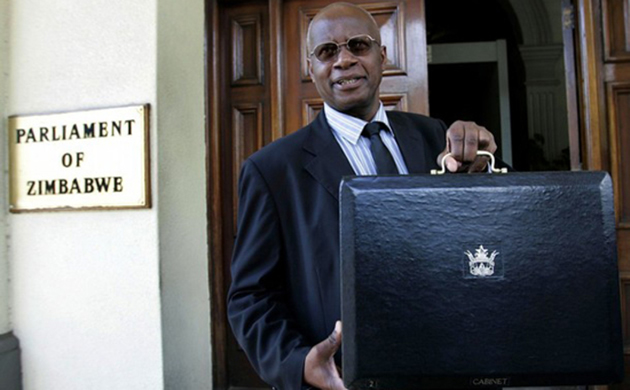A Buy Zimbabwe word into the mid-term Budget

Kipson Gundani Buy Zimbabwe
What is really the magic formula that will usher a period of plenty for this country which is abundantly resource-rich and boasts a world- class human capital base?
Why is it that our economic fundamentals continue to weaken in an era where our regional and continental peers are among the top growing countries in the world? What is the role of a fiscal policy in such an environment?
It’s a few days before the Honourable Minister of Finance, Patrick Chinamasa, presents the expected Mid-Term Fiscal Policy Statement. The Treasury is clearly under pressure with declining fiscal flexibility and clear signs of financial distress which has characterised our National Budgets since 2009. The distress has increased since then, reflecting the difficulties faced by the current finance minister.
The rate of economic growth continues to slow down, with gross domestic product (GDP) projected to grow by 3,1 percent in 2015 mainly driven by Government consumption which has been on the rise since 2009. The slowdown in growth is largely on the back of a slowdown in the performance of the key sectors, particularly mining, which has been hit hard by declining metal prices and an unstable policy internal environment among many other factors.
Zimbabwe is experiencing a structural regression: increasing dependence on natural resources, de-industrialisation; informalisation (84 percent of employment; 85 percent of MSMEs).
According to the CZI Manufacturing Sector Survey, industrial capacity utilisation declined sharply from 35,8 percent in 2005 to only 18,9 percent by 2007, and below 10 percent by 2008, before improving to 33 percent in 2009, 43,7 percent in 2010, and 57,2 percent in 2011, and climbing down to 44,2 percent in 2012 and 39,6 percent in 2013 and then 36 percent in 2014.
Many people have said and continue to highlight the real challenge of our fiscal environment which is the unsustainable expenditure mix: The expenditure breakdown where employment costs account for 76,1 percent, with only 7,5 percent for operations, 6,2 percent for capital expenditure is clearly not developmental.
The 2012/ 13 Global Competitiveness Report of the World Economic Forum observed that: “Surprises, however, arise not from the rankings, but rather from the policy disconnect; specifically the unwillingness of policymakers to tackle the challenges identified, opting rather to focus on soft factors which do not necessarily add value in lifting competitiveness rankings.”
In the same World Economic Forum Global Competitiveness Report 2013-14, the major competitiveness factors affecting the economy remain unchanged. This therefore means there has been little progress in resolving the major challenges bedevilling the economy. It is a sincere hope that the mid-term Budget consolidates the tone for a shift in mindset change towards addressing the fundamental challenges affecting the economy.
Elementary economics suggests that a budget is a fiscal tool in the hands of the Government which if effectively used will help towards the accomplishment of various socio-economic objectives of the country that include reducing unemployment, income inequalities, poverty and many other macroeconomic challenges.
However, there is evident decline in fiscal flexibility which is mainly self-induced. The public-sector wage bill has been one of the factors but included in that has been the rise in the burden of Government, reflected as a percentage of GDP.
As expenditures have been rising at a pace faster than economic growth and inflation, slow economic growth has led to a lag in tax receipts. A vicious cycle of a rising Government burden has constrained economic growth, retarding the tax receipts, which has consequently reduced fiscal flexibility. Last year’s Budget perpetuated this decline, as did the one before.
Slow economic growth will perpetuate and compound the social problems of poverty and unemployment despite the stated opposite intention.
The country needs higher growth and the most effective way to effect this is to reduce the burden of Government. Simple economics suggests that tax cuts promote growth while tax increases do exactly the opposite. We will judge the fiscal statement accordingly, whether is pro-growth and anti-growth.
What we have not well understood as a country is that economic growth requires investment and that investment is funded from savings. The Zimbabwe’s growth crux is clearly the lack of investment or lack of its attraction compounded by inadequate savings.
The low savings rate lies at the heart of our high unemployment rate. As already mentioned, this is not well understood in Zimbabwe, where intentions and actions are widely diverse. It is against these realities that the Budget statement becomes a leading policy tool in providing leadership to all the fragmented pieces of regulation and legislation that governs investment in the country.
The Government is cash strapped and the temptation to utilise every opportunity available to get more tax revenue is assumedly very high, a scenario which I described as anti-growth.
The most important point is, however, that taxes that target capital formation (savings) have the same economic effect as eating seeds and then wondering why harvests are not produced and those taxes that target the start of the value chain constrain economic growth more than taxes that target the end of it. In simple terms, Honourable Minister, afford the productive sectors of our economy some tax relief for this country to produce once again. All stakeholders, the Government and employees included, will benefit more and the end point of the value chains.
Maintaining the status quo will serve to lower the economic growth outcome over the next year. Consequently, the tax take will again fall short of projections and fiscal flexibility will again decline. The Budget deficit will be higher than projected through the effect of disappointing tax receipts and expenditure overruns.
Unemployment will rise and the stagflation condition will deepen. It’s high time the Honourable Minister makes the most biting decision of cutting on recurrent expenditure and cleaning up the investment environment.








Comments